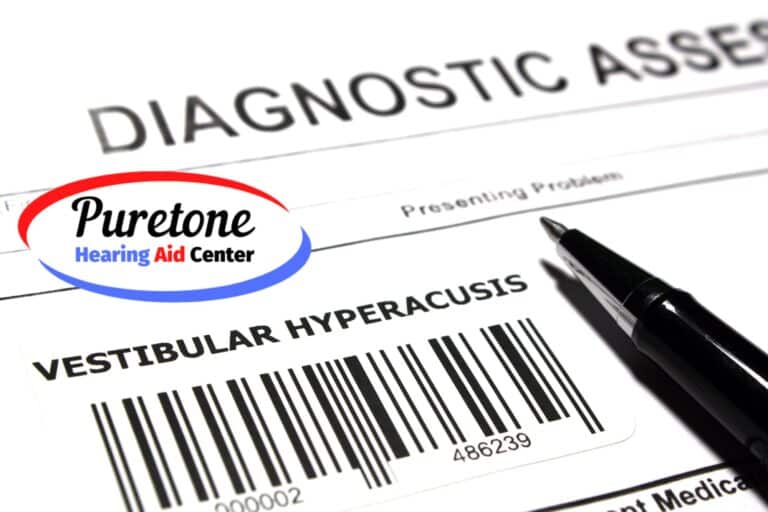If you find yourself overly sensitive to certain sounds or experiencing discomfort in loud environments, you may be dealing with sound sensitivity or hyperacusis. Understanding these conditions is crucial for finding appropriate solutions and improving your quality of life. In this article, we will delve into the causes, symptoms, diagnosis, treatment options, coping strategies, and long-term outlook for sound sensitivity and hyperacusis.
Understanding Sound Sensitivity
Sound sensitivity, also known as misophonia or phonophobia, is a condition characterized by an increased sensitivity to everyday sounds. It can be caused by various factors such as sensory processing disorder, noise-induced hearing loss, head injuries, or certain medical conditions and medications. The symptoms of sound sensitivity can vary, but they generally include heightened sensitivity to common sounds like chewing, typing, or traffic noise. This sensitivity can significantly impact your daily life, causing anxiety, irritability, and difficulty concentrating.
Differentiating Between Sound Sensitivity and Hyperacusis
While sound sensitivity refers to an overall heightened sensitivity to sound, hyperacusis is a specific condition characterized by an abnormal sensitivity to certain sound levels. Hyperacusis can be caused by sensory processing issues, ear disorders, or hearing loss. Individuals with hyperacusis often struggle with everyday sounds that are well-tolerated by others, such as a door closing or a car engine running. It is important to differentiate between sound sensitivity and hyperacusis in order to receive the appropriate care and support.
Exploring Hyperacusis
Hyperacusis is a condition that can range from mild discomfort to extreme sensitivity to sound. It can be triggered by various factors, including loud noises, specific frequencies, or even everyday sounds at normal volume levels. Individuals with hyperacusis may experience symptoms such as pain, discomfort, or even fear when exposed to triggering sounds. Hyperacusis can coexist with other hearing conditions like tinnitus or hearing loss, intensifying the challenges faced by affected individuals.
Diagnosis and Evaluation
If you suspect that you may be experiencing sound sensitivity or hyperacusis, it is crucial to seek professional help from an audiologist or hearing care specialist. These experts can perform a comprehensive audiological evaluation to assess your hearing and measure your sensitivity to different sound levels. They may also use questionnaires and self-assessment tools to better understand your symptoms and the impact they have on your daily life. Seeking a professional evaluation is the first step towards gaining a better understanding of your condition and finding the right treatment options.
Treatment Options
Fortunately, there are several treatment options available for managing sound sensitivity and hyperacusis. One common approach is sound therapy, which involves gradually exposing individuals to low-level background noises to desensitize them. Counseling and cognitive-behavioral therapy can also be effective in helping individuals cope with their reactions and emotions related to sound sensitivity. Hearing aids and other assistive devices may also be recommended to improve sound tolerance and enhance communication. In some cases, medications or medical interventions may be considered to alleviate severe symptoms.
Coping Strategies and Lifestyle Modifications
In addition to professional treatments, implementing coping strategies and making lifestyle modifications can greatly assist in managing sound sensitivity and hyperacusis. Noise management techniques, such as using earplugs or noise-canceling headphones, can provide relief in noisy environments. Stress reduction and relaxation techniques, like deep breathing exercises or mindfulness meditation, can help individuals better manage their emotional response to sound triggers. Communication strategies, such as using visual cues or advocating for quiet spaces, can improve social interactions. Additionally, seeking support from support groups and utilizing online resources can provide individuals with valuable insights and encouragement.
Prognosis and Long-Term Outlook
The prognosis and long-term outlook for individuals with sound sensitivity and hyperacusis can vary. Early intervention and treatment are crucial in managing these conditions effectively. It is important to remember that each person is unique, and their response to treatment may differ. While some individuals may experience significant improvements in their sound tolerance and quality of life, others may require ongoing management strategies. By making necessary lifestyle adjustments, utilizing appropriate resources, and working closely with their healthcare team, individuals with sound sensitivity and hyperacusis can lead fulfilling lives.
Mastering sound sensitivity and hyperacusis is possible with the right support and understanding. Seeking professional help and support is crucial in finding appropriate treatment options tailored to your specific needs. By taking control of your condition, implementing coping mechanisms, and making necessary lifestyle adjustments, you can improve your sound tolerance and reclaim your quality of life. Do not hesitate to give us a call or request an appointment so we can provide expert guidance and support on your journey. Together, let’s empower individuals with sound sensitivity and hyperacusis to thrive and enjoy the world around them.



